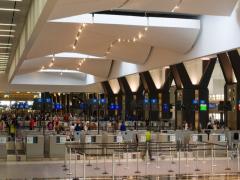A DRAMATIC surge in travel
fraud has seen agents
become victims of a
sinister pattern of fraudulent
activity known as cyber fraud.
Travel fraud alone has
increased by 425% over the
past year, according to a
recent study conducted by
the City of London Police’s
National Fraud Intelligence
Bureau, and is representative
of what is happening in the
South African market too, says
national director: Forensic
Services of Mazars, Christo
Snyman.
Various methods are used to
perpetrate this fraud. Christo
uses the example of an agent
who fell victim to this crime
while making a booking with a
hotel in the Congo via email.
She was asked by a group
of corporate travellers to find
accommodation in the country
and she tracked down an
appropriate option online.
The agent emailed the hotel
with her enquiry. She received
a quotation from the hotel
and asked to pay via advance
bank transfer. The hotel then
provided its banking details.
That same day, the agent
confirmed that her client would
go ahead with the booking and
later that she would arrange
payment.
The fraudster then entered
the conversation with an email
from the same address as the
hotel’s, which said the hotel
was experiencing problems
with its banking system and
payment should be sent to a
nominated subsidiary bank
account. The hotel’s actual
email address is a Yahoo
account, which Christo says
makes it more vulnerable to
impersonation.
The agent then confirmed
that payment would be made
using the updated details and
the fraudster responded with a
booking confirmation.
In the meantime, the real
hotel started demanding its
money.
The agent on this occasion
had a lucky escape as once it
was realised fraudulent activity
had occurred, Christo was
able to have the bank transfer
halted.
He says, though, that
whether or not the agent
incurs the loss will depend on
the investigation outcome
Tricksters target travel agents
Comments | 0












